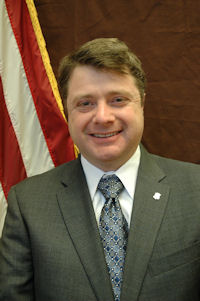Dear Editor,

JAMES C. SHEEHAN
Governor Gina Raimondo has made in-person learning a top priority for Rhode Island’s school children during the Covid-19 pandemic. The governor knows that the educational outcomes, social-emotional health, and well-being of students are optimal when students learn in-person. To facilitate this goal, school districts with in-person learning have implemented the Rhode Island Department of Health (RIDOH) Covid-19 guidelines.
In spite of significant challenges, school district leaders, faculty, and staff succeeded in re-opening in-person learning this year in a reasonably safe manner, with low Covid-19 infection rates to date.
The North Kingstown School Department (NKSD) conscientiously implemented the RIDOH Covid-19 guidelines in all schools. As a parent of two young children in North Kingstown schools, these safety guidelines gave me the confidence to send my children back to school for in-person learning in September.
However, my confidence was shaken when I was notified by the school department that our 11 year old son, along with 43 other students over two schools, was required to quarantine for two weeks due to possible exposure to Covid-19.
We were concerned, but became alarmed when we learned that the student who may have exposed our son, actually tested positive for the Covid-19 virus.
My son was distressed and anxious until he finally tested negative for the virus at the end of the quarantine period (I hope everyone is well or fully recovered).
I did not know what precipitated the quarantine; but considered it an unintended mistake. This past week, I read a news article that indicated otherwise.
Per the article, two unnamed North Kingstown parents had asked the Rhode Island Department of Education (RIDE) to decide whether or not their two children, a tenth grade girl and a sixth grade boy, could return to school for in-person learning at their respective high and middle schools.
NKSD Superintendent Philip Auger had assigned the siblings to distance learning (until February) because he believed that their parents were not “taking [the RIDOH Covid-19 guidelines] seriously.”
Most notably, the parents sent their sixth-grade boy to school on three separate occasions in apparent violation of the RIDOH Covid-19 guidelines, specifically the quarantine and isolation rules.
According to RIDE, the parents implicitly admitted this violation and more stating: “they may have been mistaken when, after their children had experienced symptoms associated with Covid-19 or had been exposed to a family member [the father] exhibiting the symptoms, they nonetheless sent their children to school without having first received a negative Covid-19 test.”
The parents complained that their children’s exclusion from in-person learning was unfair, and that distance learning fell short of meeting the needs of their children. Their attorney, H. Jefferson Melish, petitioned RIDE to have the parents’ children reinstated to in-person learning.
Mr. Melish’s argument was that the children were being punished “for the sins of the parents.” The NKSD lawyer countered that distance learning was not a punishment, but a means to send a message to parents whose noncompliance placed other students and school personnel at risk of infection.
Education Commissioner Angelica Infante-Green decided in favor of the parents. In a December 29, 2020 RIDE decision, she ordered the NKSD to allow the children to return to in-person learning immediately following the holiday break.
The commissioner further admonished the NKSD as having offered no evidence to support the notion that denying children in-person learning was “a necessary and/or effective way to send a message to adults about the need for…compliance” with RIDOH’s Covid-19 guidelines.
No student should be punished for the sins of their parents. However, Commissioner Infante-Green left one critical question unanswered: how do school districts send “an effective message to adults about the need” to comply with RIDOH’s Covid-19 guidelines – especially after repeated and apparently willful failures to do so?
Without some effective policy of deterrence along with the full-throated backing of RIDE, school districts may find it difficult to ensure that parents comply with RIDOH Covid-19 guidelines.
This could lead to more quarantines and/or rise in virus transmissions in schools, endangering the health and welfare of students, faculty, and staff.
In such a scenario, public confidence in in-person learning could erode, pressuring effected school districts to move to distance learning. And, distance learning would deprive every child the benefits of in-person learning.
James C. Sheehan served North Kingstown and Narragansett in the RI State Senate for 20 years. His committee assignments included the Senate Education Committee. Mr. Sheehan is also a 25 year educator of US History, Civics and AP Psychology in Warwick.
